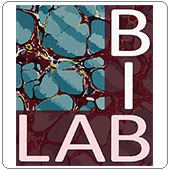 URBE Network is working on a project to create a digital repository of Doctoral Thesis discussed in the associated Institutions. The tool chosen allows the self-archiving of dissertations, data and other documentation. In this phase, the secretariats and Academic Authorities are defining the policies of archiving while the Libraries are analyzing the question about metadata and links with hard copies kept.
URBE Network is working on a project to create a digital repository of Doctoral Thesis discussed in the associated Institutions. The tool chosen allows the self-archiving of dissertations, data and other documentation. In this phase, the secretariats and Academic Authorities are defining the policies of archiving while the Libraries are analyzing the question about metadata and links with hard copies kept.

The Library regularly offers issues of periodicals erroneously received in duplicate, those subject to discard and weeding to interested libraries. This practice is very appreciated by other libraries because allows to increase their collections or to fill the gaps.

The Library has activated an agreement with ICPAL (Istituto Centrale per la Patologia degli Archivi e del Libro) for start curricular interships to carry out in internal Conservation and Restoration Lab. During this period, students work on volumes of Fondo Antichi e rari: taking into account the students' technical and operational skills different types of interventions are carried out, from simple dusting and safety to the implementation of complete restorations. In this way, conservation and valorization projects are possible reducing the costs. Moreover, this affiliation made it possible to start a close collaboration between the Library and national institutes in charge of conservation, favoring the evaluation of restoration interventions, materials and thechical exchange. The Library has started also an annual Extracurricular Interships with support of Regione Lazio: the apprentice improved his knowledge and skills in Distribution and handling of patrimony Service.
 The Ancient and Rare Fund of the Library represents one of the excellences of the Pontifical Gregorian Univerity. In order to preserve the rich collection of printed volumes and, at the same time, make it available to scholars, a working group has been set up with the collaboration of librarians, conservators and restorers united by passion and competence and, in January 2019, an internal laboratory was set up for conservation and restoration works on books and documentary materials in need of care. The project, undoubtedly ambitious, has made it possible to start a close collaboration between the Library and national institutes in charge of conservation, favoring the updating of internal staff, the evaluation of restoration interventions, and the adaptation to conservation standards and protocols for emergencies. The Lab makes use of the stable consultancy of professional restorers and has activated apprenticeships with Higher Education Institutes that take into account the students' technical and operational skills by contemplating the performance of different types of interventions, from simple dusting and safety to the implementation of complete restorations.
The Ancient and Rare Fund of the Library represents one of the excellences of the Pontifical Gregorian Univerity. In order to preserve the rich collection of printed volumes and, at the same time, make it available to scholars, a working group has been set up with the collaboration of librarians, conservators and restorers united by passion and competence and, in January 2019, an internal laboratory was set up for conservation and restoration works on books and documentary materials in need of care. The project, undoubtedly ambitious, has made it possible to start a close collaboration between the Library and national institutes in charge of conservation, favoring the updating of internal staff, the evaluation of restoration interventions, and the adaptation to conservation standards and protocols for emergencies. The Lab makes use of the stable consultancy of professional restorers and has activated apprenticeships with Higher Education Institutes that take into account the students' technical and operational skills by contemplating the performance of different types of interventions, from simple dusting and safety to the implementation of complete restorations.

In October 2018 the Library joined the Beta Masaheft Project Manuscript of Ethiopia and Eritrea. This is a long-term project, funded by the Hamburg Academy of Sciences and coordinated by the University of Hamburg, with the aim of creating a research infrastructure on the manuscript tradition of Christian texts from the Ethiopian and Eritrean area. If the ultimate goal of the Beta Masaheft Project is to shed light on the history of Christian culture and its authors in the Ethiopian area, the description of manuscripts, accompanied where possible by the reproduction of the specimens, will make these texts available and studyable, with the aim of carry out the translation and critical edition. The Library participates in this important initiative with the nucleus of Ethiopian manuscripts that arrived with the big Vedovato Donation. The restoration of manuscripts, now completed, was carried out with minimal and targeted interventions; parallel to the restoration, the historical-artistic analysis and the cataloguing of the specimens were carried out. In the coming months, the Laboratory of Non-Destructive Analysis and Archaeometry of the Department of Basic and Applied Sciences for Engineering at Sapienza University will carry out the appropriate diagnostic investigations on some selected specimens. The Project, therefore, is configured as a study conducted by an interdisciplinary team and aimed at deepening the knowledge of rare and still little known artifacts.

